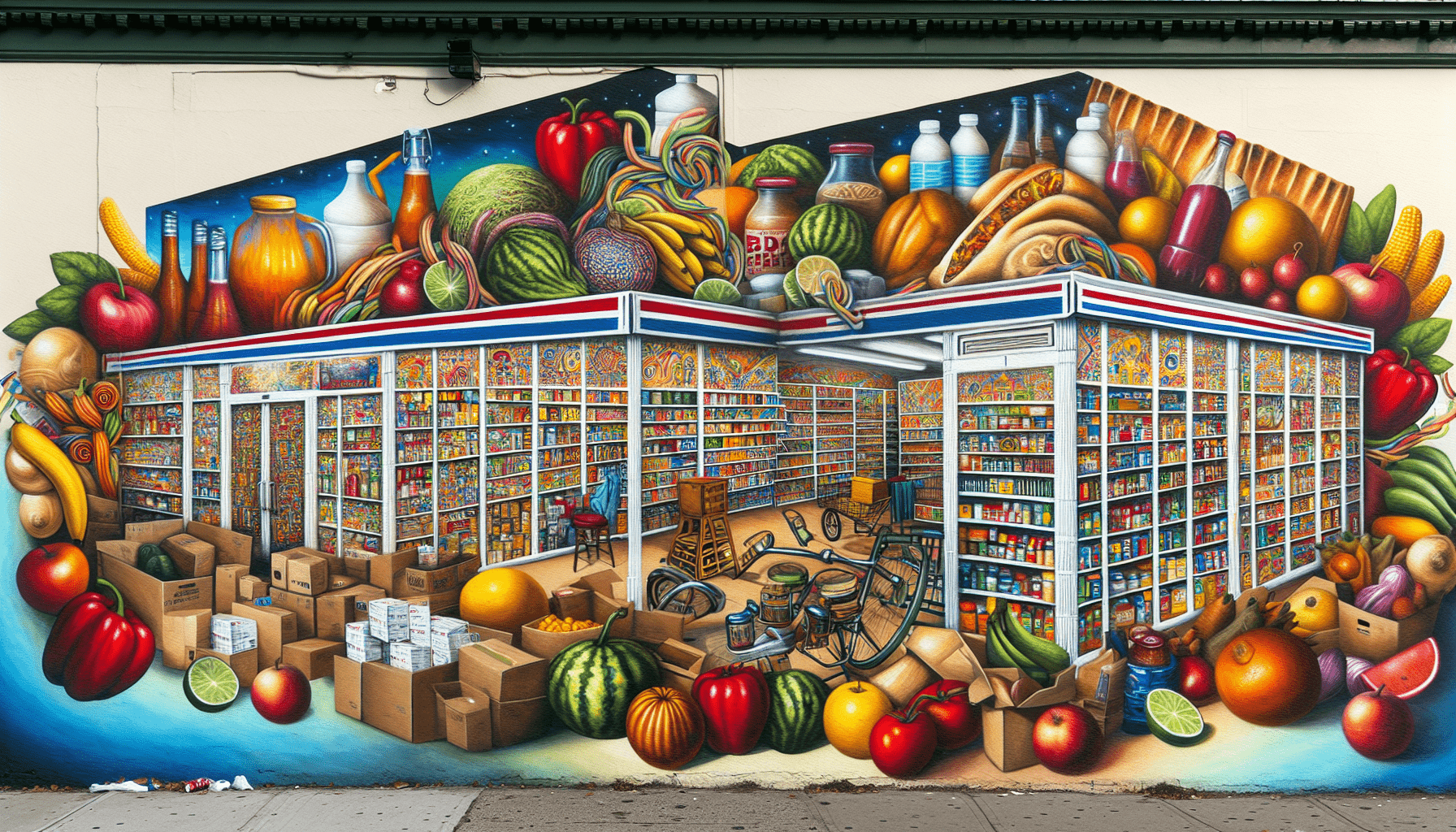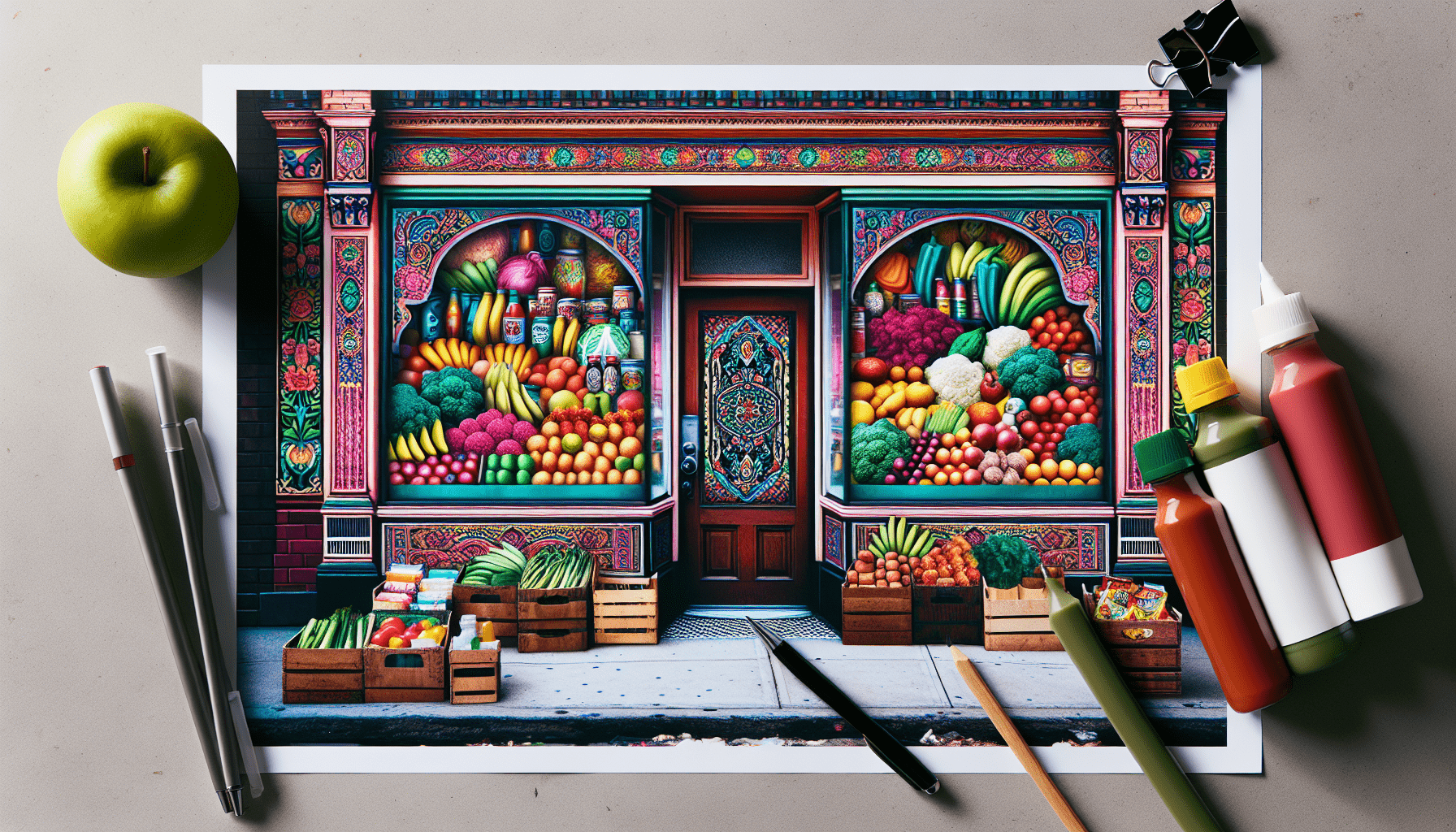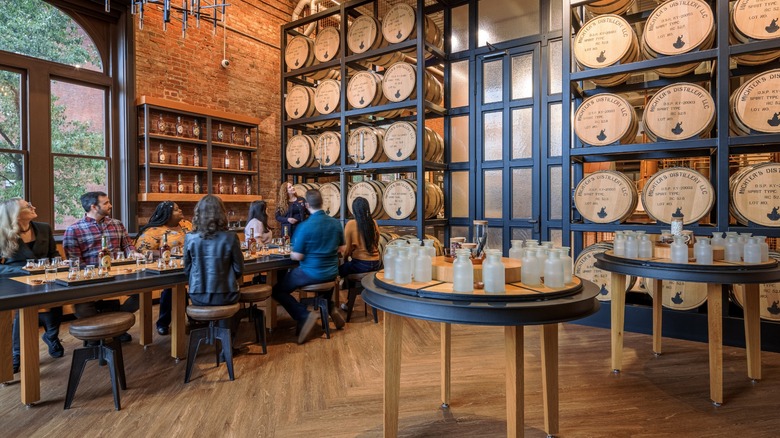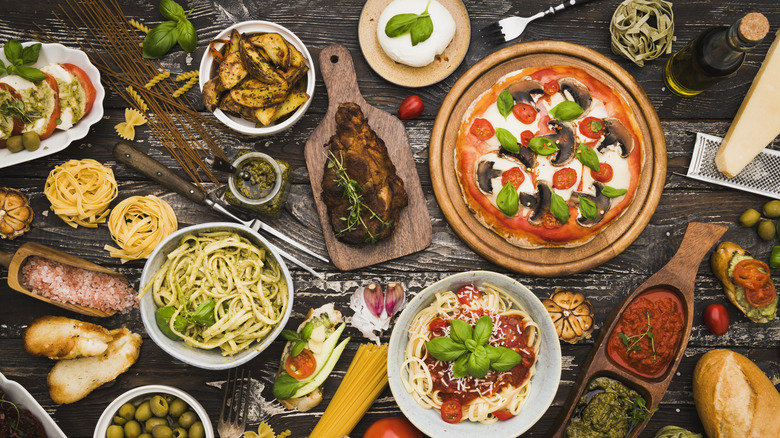SIEPASA Windproof Travel Compact Umbrella-Automatic Umbrellas for Rain-Compact Folding Umbrella, Travel Umbrella Compact, Small Portable Windproof Umbrellas for Men Women Teenage.
$8.49 (as of November 23, 2024 15:27 GMT +00:00 - More infoProduct prices and availability are accurate as of the date/time indicated and are subject to change. Any price and availability information displayed on [relevant Amazon Site(s), as applicable] at the time of purchase will apply to the purchase of this product.)In this article, we explore the intriguing question of what sets a bodega apart from a convenience store. Depending on where you are, these terms might be used interchangeably, but in New York City, the term ‘bodega’ carries a unique cultural significance. Originally referring to a warehouse or wine cellar in Spanish, the definition of a bodega in New York has evolved to encompass small, independent, owner-operated grocery stores with a familiar atmosphere, often run by Puerto Ricans, Dominicans, or other Latinx groups. These bodegas have a rich history and heritage, dating back to the early 20th century when Spanish-speaking immigrants needed a place to sell specialty items from their home countries. Today, bodegas serve as more than just stores; they act as community hubs, fostering connections and conversations among neighbors. So, what really makes a bodega different? Join us as we delve into the fascinating world of these beloved establishments and explore the cultural legacy that sets them apart from typical convenience stores.
Get an Official Zagat Restaurant Guide
Definition of a Bodega
A bodega, often referred to as a corner store or deli, is a small, independent, owner-operated grocery store with a familiar and informal atmosphere. The term “bodega” originates from the Spanish language, where it translates to “warehouse” or “wine cellar.” In New York City, the term has evolved to specifically refer to these types of grocery stores run by Puerto Ricans, Dominicans, or other Latinx groups. While some claim that the term is not commonly used by native New Yorkers, it has become synonymous with the unique cultural heritage and vibe of these establishments, setting them apart from corporate chain convenience stores.
Etymology of the term
The term “bodega” has its roots in Spanish, where it refers to a warehouse or wine cellar. In New York City, the term has come to signify a small, independent grocery store run by Latinx communities. While some argue that it is not a term commonly used by native New Yorkers, it has become a part of the city’s cultural fabric. Bodegas have become an integral part of the city’s identity, offering a unique and familiar shopping experience to the diverse communities they serve.
Different names for similar establishments
Depending on where you are, the shop around the block that offers a variety of goods might be referred to as a convenience store, corner store, bodega, or deli. While these names are often used interchangeably to describe similar establishments, they do carry slight nuances. Convenience stores, as the name suggests, prioritize convenience and usually have a larger selection of fast food options. Corner stores, on the other hand, typically refer to small stores located on street corners. Bodegas and delis often have a stronger connection to Latinx communities and are known for their informal and familiar atmosphere.
Unique characteristics of New York City bodegas
New York City bodegas are known for their unique characteristics that set them apart from other convenience stores. They often have a strong connection to Latinx communities, acting as a meeting place and hub for social interactions. Bodegas maintain a close relationship with their customers, fostering a sense of community and belonging. They also tend to have a more limited range of products compared to specialty stores, focusing mainly on food items and household goods. Despite their smaller size and limited offerings, bodegas play a significant role in maintaining the neighborhood’s character and cultural heritage.
Origins of bodegas in New York City
The history of bodegas in New York City dates back to the early 20th century when Spanish-speaking immigrants, primarily Puerto Ricans, needed a place to sell specialty items from their home country. These items were not readily available elsewhere in the city, and bodegas provided a space for these immigrants to connect with their communities and share a piece of their culture. As waves of Puerto Rican immigrants continued to arrive in America throughout the 20th century, bodegas served as important spaces for newcomers to establish social and economic bonds within their neighborhoods. Over time, the ownership of bodegas transitioned from Puerto Ricans to Dominican immigrants, who currently operate the majority of Latinx-owned bodegas in New York City.
Evolution of bodegas and their connection to Latinx communities
As the next generation of Puerto Rican immigrants became less interested in running bodegas, Dominican immigrants stepped in to take over these businesses. This transition marked a significant shift in the ownership and operation of bodegas in New York City. Today, bodegas continue to serve as vital community spaces for Latinx residents, providing a place to connect, socialize, and find familiar products from their home countries. The cultural legacy of bodegas remains strong, with their presence serving as a reminder of the history and heritage of Latinx communities in the city.
Role of bodegas in fostering community bonds
Bodegas play a crucial role in fostering community bonds and social connections within neighborhoods. Bodega owners often develop close relationships with their customers, providing a personalized and friendly shopping experience. These establishments serve as casual hangout spots where locals can gather, socialize, and engage in activities like playing dice or cards. Bodegas serve as a cultural hub, helping to bridge the gap between different generations and create a sense of belonging for Latinx communities. The familiar atmosphere and community connections established in bodegas contribute to the unique identity of these establishments.
Dominican influence on bodegas in New York City
Currently, most Latinx-owned bodegas in New York City are operated by Dominicans, with their influence playing a significant role in shaping the character and offerings of these establishments. Dominican-owned bodegas often stock a variety of Latin American snacks and beverages, providing a taste of home for many residents. The Dominican community’s presence in the bodega market has contributed to the rich cultural heritage and diverse offerings found in these neighborhood stores. Bodegas have become a symbol of the Dominican community’s contributions to the city’s social fabric.

Get an Official Zagat Restaurant Guide
United Bodegas of America organization
The United Bodegas of America (UBA) organization is dedicated to supporting bodega owners in New York City. This organization serves as a platform for bodega owners to come together, share resources, and address common challenges faced by their businesses. The UBA plays a vital role in advocating for the interests and needs of bodega owners. It also provides educational opportunities and business support to help bodega owners thrive in a competitive market. The UBA’s presence underscores the importance of bodegas as cultural and economic pillars in their respective neighborhoods.
Spanish-language presence in the bodega community
The bodega community in New York City has a strong Spanish-language presence, reflecting the cultural heritage of its diverse Latinx owners. Bodega signs and advertisements often feature Spanish-language text, catering to the community’s linguistic needs and preferences. Many bodega owners and employees are fluent in Spanish, creating a welcoming and inclusive environment for Spanish-speaking residents. This linguistic connection further enhances the cultural authenticity and sense of belonging experienced within bodegas.
New York State Department of Health’s definition of a bodega
According to the New York State Department of Health, a bodega is a small shop that primarily sells milk, focuses on food items, and is not classified as a specialty store. Bodegas typically have no more than two cash registers, distinguishing them from larger convenience stores or supermarkets. The state’s definition highlights the role of bodegas as neighborhood grocery stores that prioritize providing essential food items for local residents. While bodegas may have a limited selection compared to specialty stores, they play a crucial role in serving the immediate needs of their communities.
Focus on food items and household goods
Bodegas primarily focus on selling food items and household goods. They offer a range of essentials like milk, bread, eggs, and canned goods, ensuring that residents have access to everyday necessities. Bodegas often carry a variety of Latin American snacks and beverages, catering to the cultural preferences of their Latinx customer base. They also stock household items such as toiletries, cleaning products, and basic kitchen supplies. While bodegas may not offer the same extensive selection as larger supermarkets, they provide convenience and accessibility for customers in their immediate neighborhoods.
Limited offerings compared to specialty stores
One distinction between bodegas and specialty stores is the limited range of offerings in bodegas. Specialty stores, such as butchers or candy shops, focus on providing a specific type of product, often with a wider selection. Bodegas, on the other hand, prioritize offering a range of essential food items and household goods. The emphasis is on convenience and accessibility, with a focus on serving the immediate needs of the local community. While bodegas may not have the same variety as specialty stores, they excel in providing convenience and familiarity within their neighborhoods.
Similarities between bodegas and convenience stores
Both bodegas and convenience stores share similarities in terms of their small size, focus on providing essential goods, and often being open 24/7. Convenience stores, like bodegas, aim to cater to the immediate needs of their customers, offering convenience and accessibility. Both types of stores often sell food items, household goods, and limited alcoholic beverages like beer and hard seltzers. These similarities in product offerings and convenience make bodegas and convenience stores go-to destinations for quick and convenient shopping experiences.
Differences in size and location
While bodegas and convenience stores have similarities, there are notable differences in their size and location. Bodegas are typically smaller in size, often serving specific neighborhoods or local communities. They are often owner-operated, providing a personal touch and familiar atmosphere. Convenience stores, on the other hand, may be larger and often affiliated with gas stations or larger retail chains. These stores are strategically located along major roads or highways to cater to travelers and passersby. The difference in size and location contributes to the unique character and community connection found in bodegas.
Distinctions in food offerings and alcoholic beverages
Bodegas and convenience stores also differ in their food offerings and availability of alcoholic beverages. While both types of stores sell food items, bodegas often focus on providing ready-made sandwiches and snacks, while convenience stores may offer a wider range of fast food options made to order. In terms of alcoholic beverages, bodegas typically carry a selection of beer and hard seltzers but do not sell wine or liquor. Convenience stores, on the other hand, may have a broader selection of alcoholic beverages, including wine and liquor. These distinctions in food offerings and alcoholic beverages reflect the unique nature and community-centered focus of bodegas.

Copycats and attempts to replicate the bodega experience
The popularity and distinctiveness of bodegas have led to various attempts to replicate the bodega experience. There have been instances of copycats, often operated by non-Latinx individuals, attempting to recreate the familiar atmosphere and charm of bodegas. While these establishments may share certain similarities with bodegas, they often lack the cultural heritage and community connection that define authentic bodegas. The unique experience of shopping at a bodega stems from its deep roots in Latinx communities, making it challenging to replicate without understanding and appreciating its cultural significance.
Importance of history and heritage in defining bodegas
The history and heritage of bodegas play a crucial role in defining their identity and significance. Bodegas originated as spaces where Spanish-speaking immigrants, particularly Puerto Ricans, could sell specialty items from their home countries. These spaces provided a sense of familiarity, community, and a taste of home for these immigrants. Over time, bodegas became ingrained in the social fabric of New York City, serving as important community hubs and meeting places. Understanding and appreciating the history and heritage of bodegas is essential to preserving their unique identity.
Maintaining the unique identity of bodegas
Preserving the unique identity of bodegas requires recognizing and honoring their cultural heritage and connection to Latinx communities. Efforts to maintain the authenticity of bodegas include supporting Latinx-owned businesses, celebrating their contributions to the community, and promoting the cultural significance of these establishments. Additionally, raising awareness and promoting an understanding of the history and heritage of bodegas can help ensure their continued existence as vital pillars of community life in New York City. It is crucial to support bodegas in a way that respects and values their distinct qualities and the communities they serve.
Close relationships between bodega owners and customers
One defining characteristic of bodegas is the close relationships that develop between the owners and their customers. Bodega owners often know their customers by name, creating a personalized and friendly shopping experience. These relationships go beyond a simple transaction and contribute to the sense of community and belonging within the neighborhood. Bodega owners often play an active role in supporting their communities, whether through offering assistance to those in need or providing a gathering space for local activities. The close bond between bodega owners and their customers fosters a strong sense of community and social connection.
Bodegas as casual hangout spots
Bodegas serve as more than just places to shop – they often act as casual hangout spots for people in the neighborhood. Some bodegas have card tables where locals gather to play games like dice, fostering a sense of camaraderie and friendly competition. These informal hangout spots provide a space for socialization, where people from the neighborhood can gather, share stories, and form connections. Bodegas become an extension of people’s homes, serving as a meeting place where friendships are forged and memories are made. The casual and welcoming atmosphere within bodegas contributes to their unique social function.
Cultural legacy and communal function of bodegas
Bodegas hold a significant cultural legacy and serve as essential communal spaces within neighborhoods. They reflect the multicultural fabric of New York City while providing a sense of belonging and familiarity for Latinx communities in particular. Bodegas act as cultural touchstones, preserving traditions, and offering a taste of home for residents. They serve as vital gathering places where cultural practices, stories, and experiences are shared, fostering a sense of pride and identity. The communal function of bodegas goes beyond a mere convenience store, making them important spaces for cultural preservation and the promotion of intergenerational connections.
Efforts to support bodega owners
Recognizing the value and cultural significance of bodegas, there have been various efforts to support bodega owners and ensure their continued success. Organizations like the United Bodegas of America (UBA) provide crucial resources, advocacy, and business support to bodega owners. The UBA serves as a platform for bodega owners to come together, share knowledge, and address common challenges faced by their businesses. These efforts help bodega owners navigate the competitive business landscape and maintain the unique qualities that make bodegas special. Supporting bodega owners is crucial in preserving the cultural heritage and social function of these neighborhood establishments.
Challenges faced by bodega owners
Bodega owners face a range of challenges in running their businesses. These challenges include increasing competition from larger chain stores, rising operating costs, and the need to adapt to changing consumer demands. Limited resources and access to funding can also pose significant hurdles for bodega owners, making it harder to invest in expanding their offerings or upgrading their facilities. Additionally, gentrification and changing neighborhood demographics can impact the customer base and dynamics of local bodegas. Overcoming these challenges requires support from both the community and larger organizations to ensure the sustainability of bodegas in the face of changing urban landscapes.
Recognition of bodegas as cultural landmarks
Bodegas have gained recognition as cultural landmarks within their respective neighborhoods. These establishments represent more than just places to buy groceries – they are symbols of the community’s resilience, heritage, and identity. Recognizing bodegas as cultural landmarks ensures their preservation in the face of urban development and gentrification. They become tangible reminders of a neighborhood’s history and serve as important touchstones for future generations. Preserving bodegas as cultural landmarks helps maintain the unique character and identity of New York City’s diverse neighborhoods.
Importance of bodegas in maintaining neighborhood character
Bodegas play a crucial role in maintaining the character and charm of New York City’s neighborhoods. They contribute to the vibrant tapestry of the city, reflecting the diversity and multiculturalism that define it. Bodegas bring a sense of authenticity and familiarity to their neighborhoods, preserving their unique identity in the face of urban development. They serve as gathering places, meeting spots, and community hubs. The presence of bodegas in neighborhoods enhances the overall quality of life for residents, providing convenience, social connections, and a tangible sense of community.
Sustaining the tradition and legacy of bodegas
Sustaining the tradition and legacy of bodegas requires a collective effort from the community, bodega owners, and larger organizations. Promoting and supporting Latinx-owned businesses, recognizing the cultural significance of bodegas, and advocating for their preservation are all essential steps. It is crucial to celebrate the unique qualities of bodegas and create an environment where they can thrive. Preserving the tradition and legacy of bodegas ensures that future generations can continue to experience the familiar and welcoming atmosphere found within these neighborhood establishments.
Emphasizing the unique qualities of bodegas
The unique qualities of bodegas make them special and worthy of recognition. From their familiar and informal atmosphere to their close relationships with customers, bodegas offer an experience that goes beyond just shopping for daily necessities. They serve as cultural touchstones, connecting Latinx communities with their heritage and providing a sense of belonging. The limited offerings and small size of bodegas contribute to their charm and convenience. Emphasizing the unique qualities of bodegas helps preserve their identity and ensures their place in the cultural fabric of New York City.
Appreciating the cultural significance of bodegas
Appreciating the cultural significance of bodegas is essential in recognizing their value to the community. Bodegas go beyond being mere convenience stores – they represent the history, heritage, and social fabric of neighborhoods. They contribute to the multiculturalism and diversity that define New York City. Bodegas provide a space for cultural preservation, community bonding, and fostering a sense of pride. By appreciating their cultural significance, we can support and sustain the legacy of bodegas for future generations to enjoy and cherish.
Looking towards the future of bodegas in New York City
As New York City continues to evolve, the future of bodegas faces various challenges and opportunities. It is essential to strike a balance between preserving their unique identity and adapting to changing consumer demands. Bodegas can continue to thrive by embracing technological advancements, diversifying their offerings, and engaging with the ever-changing needs of their communities. Additionally, continued support from organizations like the United Bodegas of America and the appreciation of their cultural significance will be vital in ensuring the continued presence and success of bodegas in New York City. Looking towards the future, bodegas can continue to be vibrant community spaces that celebrate diversity, foster connections, and contribute to the rich cultural fabric of the city.
Get an Official Zagat Restaurant Guide






